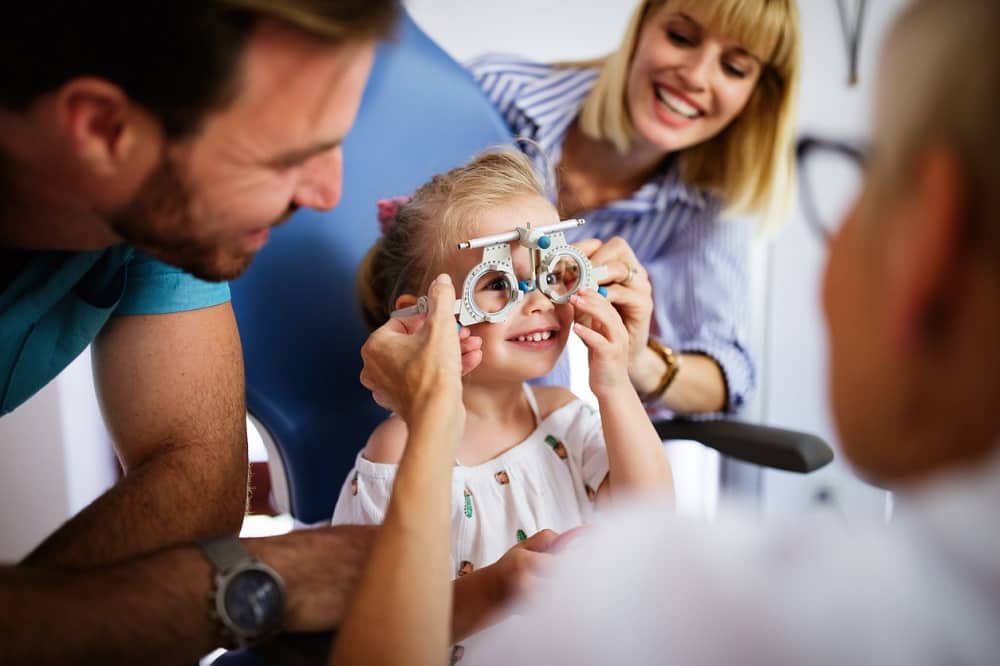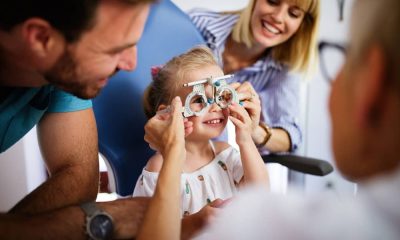Health
Seven Signs You Are Dehydrated
Dehydration occurs when your body does not have enough water or other fluids to function properly as and when required. Unfortunately, mere thirst alone is not always a reasonably reliable gauge of the human body’s need for water.
There are various complications that can result from severe dehydration. They include seizures, blood clots, and other potentially fatal complications as well. However, even relatively mild dehydration can also have some significant adverse effects on your mood, your energy levels, and your athletic performance as well. Simply put, when you are dehydrated, you will become slow and sluggish.
You must identify dehydration in its initial stages long before the more obvious signs, such as thirst and fatigue of the mind and body both come to the fore.
Am I Dehydrated or Not?
There are a few warning signs before the damage actually gets done. It is very important that you take those signs seriously indeed.

1. Dry Skin
Many people continue to adhere to the notion that people who sweat more lose fluids. And dry skin means one’s body is suitably well hydrated. However, that is definitely not the case.
Dry skin is also an obvious sign that you may well be severely dehydrated. In this case, the critical difference in-between dry skin and dehydrated skin is that dry skin typically refers to skin that is lacking in oiliness while dehydrated skin lacks moisture.
This is why it is pertinent to note that even the oiliest skin can also experience a certain level of dehydration. So, the next time you feel that your skin is dry, drink a glass or two of good ole plain H2O to replenish the electrolytes in your body. Yes, you don’t always have to reach out for that moisturizing lotion.
2. Bad Breath
Halitosis, (or bad breath), is almost always caused by bacteria in the mouth. As a general rule, the naturally occurring saliva in your mouth has entirely natural anti-bacterial properties that regularly help you fight off your bad breath. However, when you become chronically dehydrated, you will not produce enough saliva, to do the job right. This will allow the bacteria to easily ‘grow and multiply’ and flourish in this nutrient-rich (thanks to the food we eat) highly dehydrated (and humid) environment and cause a persistent halitosis problem.
3. You Want To Eat When You ‘Need’ To Drink
The thing is that our organs need water to release glycogen – our fuel reserve meant to keep our bodies running as best as they possibly can. When you are dehydrated, you will actually end up with intense food cravings for anything and everything including sweet or salty snacks. This is because your body experiences difficulties with glycogen production and therefore wants water to jump-start the process.
If your body is getting dehydrated and needs water to function, then you may well feel a certain level of hunger sensation. This is nothing but your body politely asking for water so that its energy stores can be used properly and the whole system continues to run smoothly enough.
4. You Might Get A Headache
Our brain has been suitably encased in a large sack of low viscosity fluid that helps protects it from trauma and injury. When our bodies become dehydrated, the fluid reserves in that sack is depleted, and our brain has no watery barrier between it and the skull. This means that it will almost inevitably end up pressing against the skull itself leading to headaches.
5. Muscle Cramps
When you exercise, your muscles work harder than normal. This, in turn, generates a lot of heat. Our muscles get warm from all that relentless exercising and this is why we are more than likely to feel our muscles cramping up.
If the muscle itself is dehydrated, then the odds are that it will also seize up and start cramping. It is due to the low electrolyte levels in the body, specifically sodium and potassium, the absence of which can also be a potent trigger for muscle cramps.
6. Frequent Constipation
Drinking water is essential to keep our bowels healthy. Water helps lubricate the passage of the food we eat, all the way from the gullet to the large intestine. If we do not drink enough water, the lack of fluids in our body will force large intestines to absorb water from wherever it can. Simply put, if your body lacks water, you will end up with constipation.
7. Your Skin Loses Its Suppleness
You should pinch the back portion of your hand and also hold it for a few seconds. If after doing so the skin remains tweaked without snapping back into its original position then ‘Houston, we have a problem”. This is a real sign of acute dehydration and your body needs water as soon as possible. It is imperative that you get a drink of water and continue to sip the same until your skin goes back to normal.
Conclusion
In the light of the above, we can see that our body has many ways to tell us it is dehydrated. If only we would listen! If you notice any of the signs, use a reliable telemedicine platform to contact your GP ASAP.
Author Bio: James Crook is a passionate blogger who loves to write on health and fitness related topics. Currently, he is a working as a blogger for a Physical Fitness Dr Wilson shoulder Surgeon. Follow @jamescrook911 for more updates.
Health
Unveiling the Benefits of Early Detection in Skin Cancer Treatment

Many skin cancers can be cured by finding and treating them when small. But, to find them, people must understand what to look for and regularly perform self-skin exams at home and with a dermatologist.
These exams rely on biopsy procedures that remove questionable skin tissue and check it under a microscope for cancer cells. Learn more about these biopsy procedures and their importance in diagnosing skin cancer.
Less Invasive Treatments
The cancer cells that cause skin cancer grow in the outer layer of your skin. These cells are visible to the naked eye, so skin exams at home and in a doctor’s office are important for catching them early.
Most basal and squamous cell carcinomas are small enough to be surgically removed with a local anesthetic. Other skin cancer treatment Memphis may be needed if the cancer has spread (metastasized) from the original lesion.
These may include radiation therapy or immunotherapy, which helps your immune system fight cancer. Adding these to surgery decreases the chance of the cancer returning or spreading to other areas of your body.
Some cancers, such as melanoma, maybe too far advanced to treat by surgery alone. In this case, the doctor may want to observe and monitor the tumor closely over time. This is called palliative care. A doctor may also use other tests, such as imaging or lymph node biopsies, to determine if the cancer has spread.
Better Cure Rates
Many skin cancers that develop inside the body are often curable if detected and treated early. The best way to do this is by recognizing and monitoring changing blemishes, including those that are itchy or bumpy, bleed easily, ooze, or change in color or shape.
People should learn to examine their skin daily. Basal cell carcinomas (BCCs) and squamous cell carcinomas (SCCs) are the most common skin cancers. They grow slowly and can be cured by surgery. But if left untreated, they can spread to other body parts and become disfiguring or fatal.
OHSU researchers are working to improve melanoma detection by introducing regular targeted skin examinations with trained primary care providers (PCPs). A cost-effectiveness analysis has shown that, compared to primary prevention, a targeted screening program will result in 2419 fewer melanomas and 567 fewer melanoma deaths for every 100 000 individuals, plus 2.46 million quality-adjusted life years saved and savings of PS406.1 million.
Less Disfigurement
Most basal and squamous skin cancers, even the most serious types like melanoma, are curable. These are often easily treatable if they’re caught early on when they’re small and localized.
Regular self-examinations of the skin—particularly on areas of the body that are difficult to see, such as the backs of the legs and arms—can help detect changes in spots or freckles that could signal a cancerous change. When checking these hard-to-see places, asking a partner or friend to assist you is good.
New noninvasive imaging tools also help. For example, doctors can use a scanner to create a 3-D image of the patient’s entire body, which allows them to quickly and accurately find problem lesions. They can also look at lymph nodes to see if the cancer has spread. These are known as staging tests.
Fewer Side Effects
Most skin cancers are easily cured when they’re caught early. But they can also become disfiguring if they’re left to grow. And some can spread to other parts of the body and kill.
Because they’re visible, spotting them is easy with regular self-examination and visits to the dermatologist for a professional evaluation. Look for any mole or blemish that has changed in size, color, or texture or has an unusual growth pattern.
The new tool enables a cellular-level skin examination without needing a biopsy. It’s called reflection confocal microscopy (RCM) and is used in various clinical trials, including in combination with digital photography, to help avoid unnecessary excisions.
Health
5 Advantages of Family Eye Care Services

Visiting your family doctor is integral to overall health care and provides an excellent opportunity to reinforce healthy habits like eating a balanced diet and exercising. It’s also an excellent way to detect eye problems early, especially in children.
Improved Self-Esteem
Having a healthy vision can improve your family’s self-esteem. For children, it means they can see well enough to read books and participate in extracurricular activities. It also allows them to be more confident on the field or at school and can make a huge difference in their happiness. Similarly, adults with problems with their vision may have trouble functioning at work or home and can experience a drop in self-esteem. Annual eye exams can help your entire family feel better about themselves and their health. Finding a family eye care Harrisburg provider who can accommodate your whole family’s needs is essential. Look for a provider who welcomes kids, has extensive experience working with kids, and takes the time to educate them about their eye health and vision.
Improved Eye Health
Taking care of your family’s eyesight is essential for their overall well-being. Regular eye exams can help detect health issues like diabetes and high blood pressure, which can lead to eye disease. It also allows for the opportunity to make lifestyle changes, like incorporating eye-friendly nutrients such as Vitamin E into their diet. Moreover, visiting the family eye doctor regularly can encourage the household to adopt healthy habits like regular exercise, wearing sunglasses, and smoking less. This can help prevent common health conditions, including eye diseases and vision problems. By prioritizing family eye care services, your family can enjoy a life of good vision, participate in recreational activities, and boost their confidence.
Detecting Eye Problems Early
When juggling work, appointments, and children’s schedules, a routine eye exam can be the last thing on your mind. But if you wait until it’s too late, you could be putting yourself at risk of eye health and vision problems. Regular eye exams can help you and your family maintain good eyesight. They also give doctors a window into your overall health, detecting early signs of serious diseases such as diabetes and high blood pressure. Eye exams can also reveal several other health issues, such as melanoma (dark spots on the eye), leukemia, and even a brain tumor.
Vision Therapy for Children
Vision therapy is similar to physical therapy, and it can strengthen the connection between your child’s eyes and brain. It can also alleviate digital eye strain symptoms such as dry eyes and headaches and help your child read more quickly and write legibly. Kids with poor visual skills can struggle academically. They may rush through assignments to avoid blurry or double vision, which can lead to careless mistakes. Getting a functional vision exam with an experienced children’s optometrist specializing in vision therapy can help.
Identifying Inherited Diseases
Inherited eye diseases like Stargardt, retinitis pigmentosa, and Usher syndrome are caused by defects (mutations) in one or more genes. Genetic testing can identify these genes and help doctors confirm or refine a diagnosis. It can also guide the testing of family members and help them understand their risk of developing the disease. It also enables them to qualify for clinical trials and informs them about which future therapies might benefit them. Aside from refractive errors such as nearsightedness and farsightedness, many other eye conditions and diseases are hereditary. It is, therefore, essential to know your family’s eye health history and share this information with your optometrist. This knowledge can protect your vision and prevent eye diseases before they cause significant damage.
Health
Ways How to Slow Down Biological Aging

Biological age varies from chronological age in that it considers aspects such as your health, lifestyle choices, and other considerations.
It can provide a more accurate picture of your health and risk for diseases that can shorten your lifespan.
These measures and determining how to slow down biological aging can help you decide what lifestyle changes to make now to lower your risk and increase your life expectancy.
Spend Time With People You Love
Getting in touch with your family members and spending quality time together is a great way to slow biological aging. It allows you to connect with your true self and share your emotions. Spending time with your loved ones can also help you to fulfill your emotional needs and create a strong foundation for your mental health.
Studies have shown that people close to their families have higher levels of happiness than those who aren’t. It is because they have a strong sense of belonging and a positive environment where they feel safe.
The best part about spending time with your family is that it can help you to express yourself without worrying about what others may think of you.
There are many ways that you can spend quality time with your family members, including planning a trip or discovering a new hobby together. You can also have conversations about any topic you both enjoy and are passionate about.
Aside from that, spending quality time with your family also gives you a chance to create lifelong memories that you will cherish forever. It can be anything from sharing your favorite foods or activities to discovering a new place you want to explore.
Ground Yourself Through Your Senses
Grounding yourself through your senses is one of the most effective ways to slow biological aging. It can be as simple as listening to nature, noticing the details of a sunset, or taking in the sights of a new city.
Using all five senses can help you focus on the moment, making you feel calmer and more relaxed. Practicing these skills can also be helpful when you are dealing with emotional issues like anxiety, depression, or PTSD.
The most common sense-based grounding exercises are usually quick and easy to follow. These strategies may be as small as taking three deep belly breaths, or they can be more involved, like meditation or yoga. Of course, there is no right or wrong method to ground oneself; nonetheless, it may take a few tries to find a method that works for you.
For example, the most apparent sense-based activity is focusing on your sight. Still, it can also be as simple as recognizing a landmark in your local area or attempting to name one of the many colorful flakes in your glass of water.
While these strategies are not meant to replace therapy, they can be a good start in learning how to manage your emotions and stress healthily. Trying out a few different methods can help you discover the most effective ones for you and your family.
Get Rid of Anything That Doesn’t Add Value to Your Life
The right tools and techniques can help you slow down the aging process. Among the easiest ways to accomplish this is to get rid of anything that does not offer value to your life.
There are many ways to go about identifying what you no longer need. First, look closely at your closet and garage, and eliminate the items you no longer wear or use.
Another way to clear the clutter is donating or selling the items you no longer need. It might be a terrific opportunity to earn additional money while also giving back to your community. Taking the time to do this will be well worth your while! Then, you can focus on the items that add value to your life. It is the first step in achieving your goal of feeling happier, healthier, and more contented. You’ll be astonished at how much more you enjoy your daily activities.
Take Time for Self Care
In our busy lives, self-care can sometimes seem like a luxury we must put on the back burner. But in fact, taking time to care for yourself can be crucial to keeping your life running smoothly and avoiding stressors that can lead to burnout and depression.
You’ll be able to manage your stress levels more efficiently, which will help you slow biological aging. Research has shown that when you take care of yourself, your body responds to stress by entering a parasympathetic (rest and digest) state rather than a sympathetic (fight or flight) one.
This soothing response improves your sleep, lowering your risk of heart disease and high blood pressure and slowing reaction times and irritation. It also increases your energy level, making it easier to get the tasks you need to complete done.
Even if you have a stressful job or family commitments, it’s essential to ensure you get enough rest and that your nutritional needs are met. Having a regular nightly bedtime can be a helpful way to ensure you get the sleep you need.
Having time to do things you enjoy, whether gardening, reading, going out for drinks, or just sitting in your favorite spot outside, will give you a sense of peace that can help you recharge. It will also allow you to reflect on the good times in your life, which can help you cope with the bad and prevent burnout.








